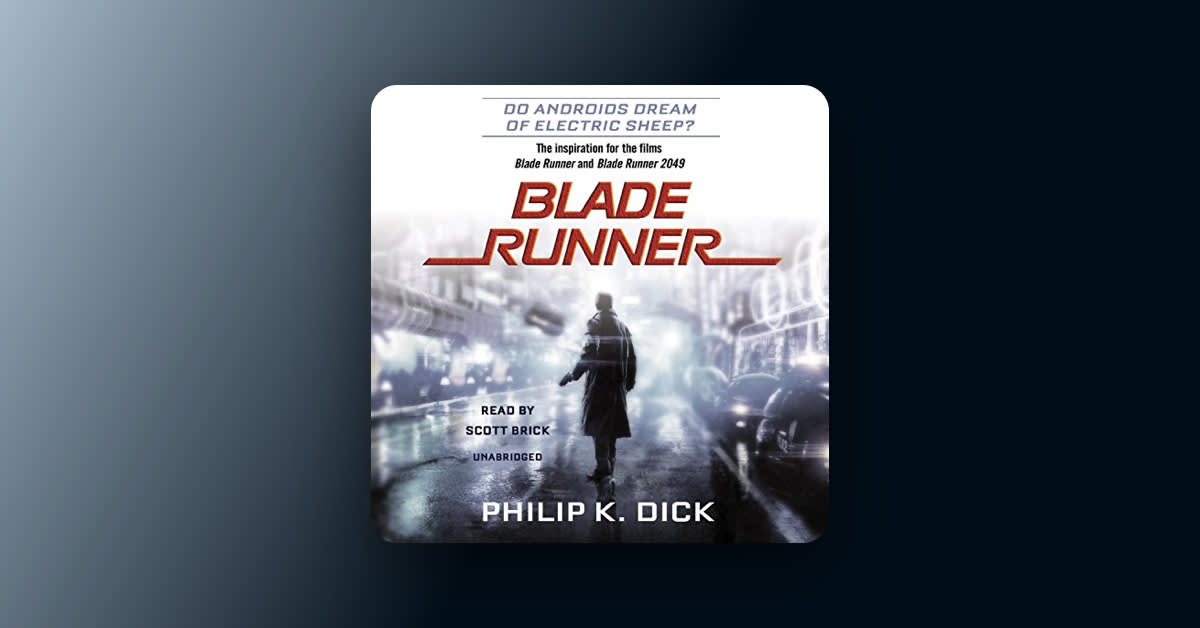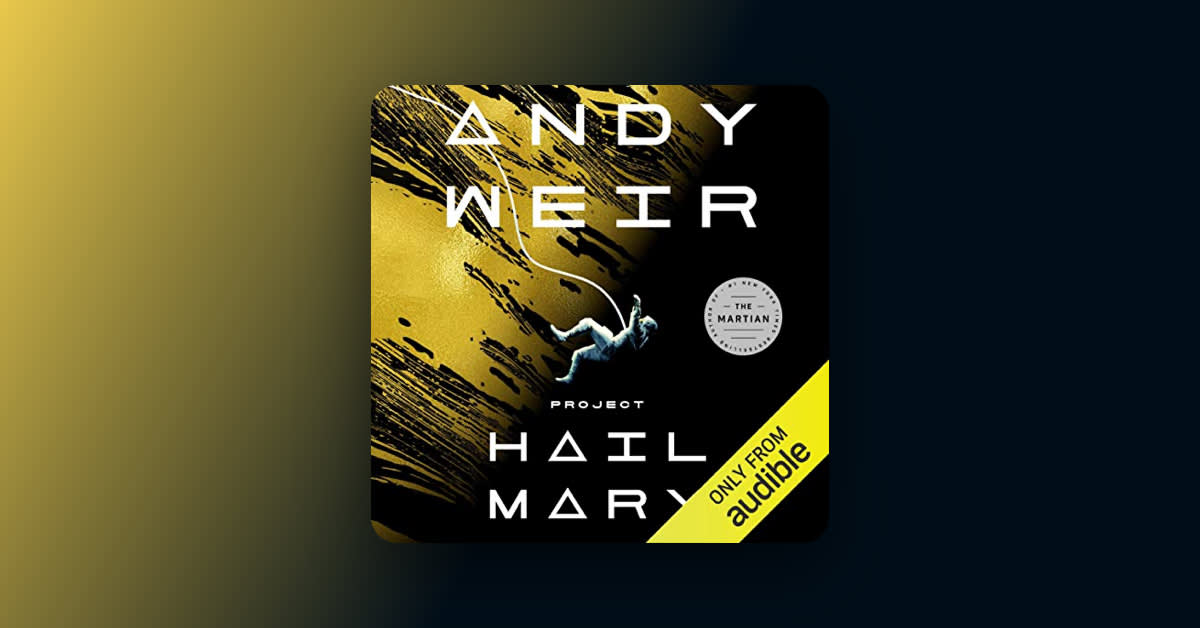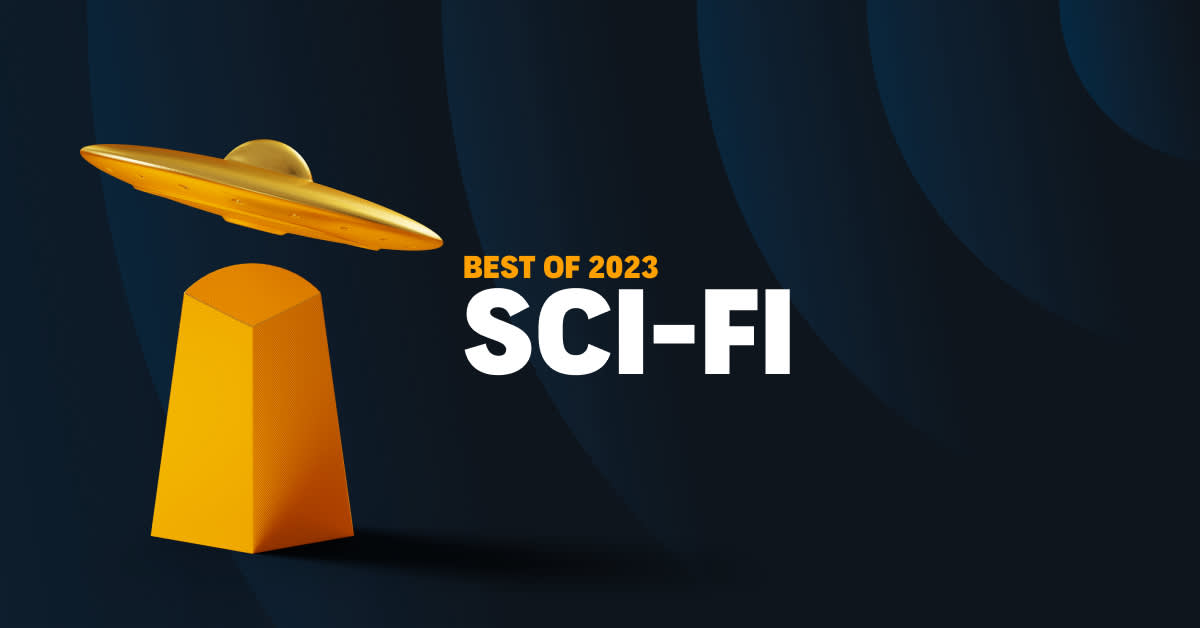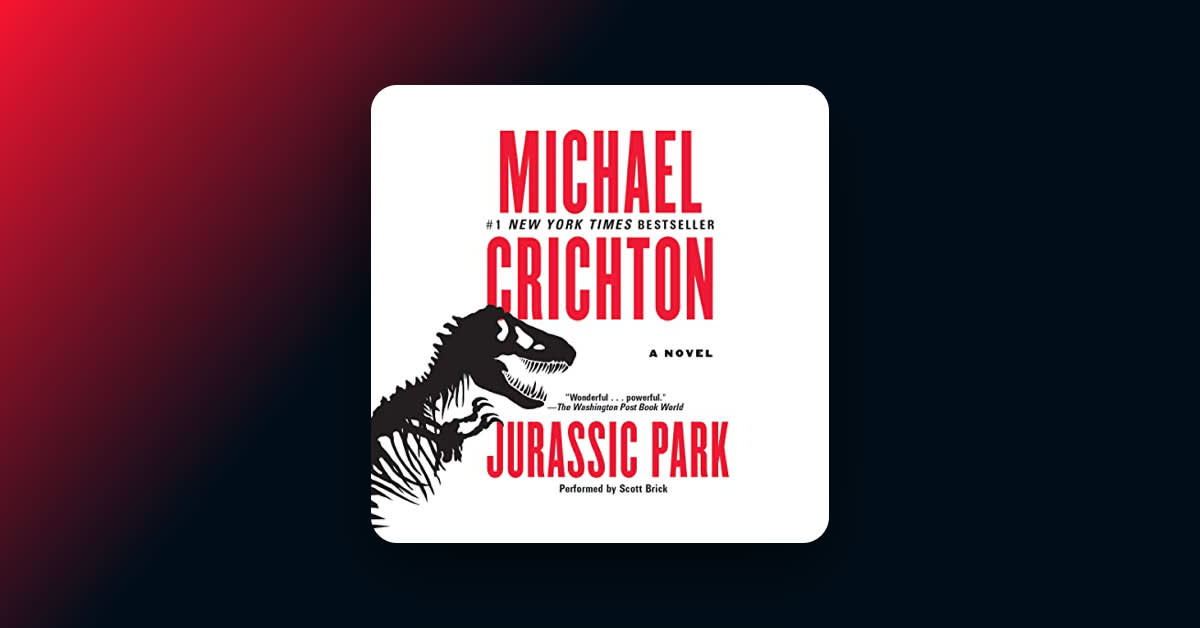Why it's essential
First published in 1968 and later re-titled Blade Runner after the success of the 1982 film adaptation, Philip K. Dick's Do Androids Dream of Electric Sheep? is an iconic novel that inspired a whole new wave of science fiction as well as a new subgenre.
Featured in the top 100 screen adaptations of all time.
What is Blade Runner about?
Blade Runner, originally published as Do Androids Dream of Electric Sheep?, is a dystopian sci-fi novel by Philip K. Dick. The world has been left nearly uninhabitable and millions have died following the destruction of the World War. Those who have been left behind mourn the loss of the world's now nearly-extinct creatures, and rebuild them as electronic birds, cows, sheep…and humans. The Rosen Association manufactures replicants—androids so real that they are nearly indistinguishable from real human beings. But when a group of replicants rebel, escaping Mars and returning to Earth, bounty hunter Rick Deckard is tasked with finding them.
Editor's review
I have a poster of Ridley Scott's Blade Runner hanging up in my living room, but, like any self-respecting book person, before I'd seen the famous movie adaptation, I read Do Androids Dream of Electric Sheep? The first time I read Philip K. Dick's novel, straightforward but filled to the brim with invention and thought-provoking concepts, was for a science fiction class as an undergrad. At the time, I had no idea what "cyberpunk" meant, and I certainly didn't understand the difference between an android and a robot. But Do Androids Dream of Electric Sheep? opened up my eyes to how sci-fi could engage the imagination.
If you've seen Blade Runner and have read or listened to the novel it’s based on, then you know that the film is not exactly what one would call a "faithful" adaptation. In fact, when I teach this book and this film in my dystopian fiction courses, students are often disappointed in the movie after reading the book first. But I think both the movie and the film are essential parts of the sci-fi canon. Both works are in conversation with each other. And both have significant things to say about the meaning of life, what it means to feel emotions, and (most essentially) what it means to be human.
Simply put, science fiction would not be where it is today without the influence of Blade Runner. And yet the audiobook is more than just an important part of sci-fi history. It's actually an incredibly engrossing, edge-of-your-seat, unforgettable ride. The future world that Philip K. Dick paints for us in his novel is a bleak one, filled with desperate characters fighting to find meaning in a world that has left them behind. But it's also a world where humanity—including androids—fights to do so much more than just survive. They're fighting for a life that feels full. Just like the rest of us.
The audiobook is read by award-winning narrator Scott Brick, who has narrated hundreds of audiobooks, including Isaac Asimov’s I, Robot. He cites Blade Runner and Budd Schulberg’s What Makes Sammy Run? as his top two favorite audiobook readings.
Did you know?
Blade Runner is a sci-fi novel, but it also incorporates elements of noir detective fiction.
In Douglas Adams's third book in his Hitchhikers to the Galaxy series, Life, the Universe and Everything, the author nods to Dick's Blade Runner when Marvin the Paranoid Android sings the following verse: "Now I lay me down to sleep, / Try to count electric sheep, / Sweet dream wishes you can keep, / How I hate the night."
The term "Blade Runner" is never actually used in the novel.
Philip K. Dick didn’t live to see the film Blade Runner completed, but he did read the script and, in a private screening, saw an early reel. According to special effects supervisor David Dryer, the author was blown away by "the texture and tone of the images" and proclaimed, "The environment is exactly how I’d imagined it!"
What listeners said
"Top shelf Philip K Dick … I had mistakenly put off this novel because, HELL, I already saw the movie. How can you improve upon THAT movie? Well, the book is better. A cliché, certainly I know, but it is spot on with this book. The movie captures a piece of the PKD mad genius … but doesn't have the spark the sizzle or the depth of the novel." —Darwin, Audible listener
"There is so much packed into this short novel it is hard know where to begin … This novel does what only sci-fi novels are able to do: ask the Big Questions. No, I don’t mean questions like ‘what is the meaning of love?’ (although it asks that question, too) but even more profound questions like ‘what does it mean to be human?’ and ‘why are we afraid of anything that is different?’ Scott Brick is one of my favorite narrators. I think his reading style goes well with science fiction. He can make things sound just – a – little – bit – off, which is just what was called for in this case." —Julie, Audible listener
"I love the movie and remember just how 'other' it seemed when it was first released. But it never made sense. Now it does." —Ian, Audible listener
Quotes from Blade Runner (Do Androids Dream of Electric Sheep?)
"You will be required to do wrong no matter where you go. It is the basic condition of life, to be required to violate your own identity."
"Empathy, evidently existed only within the human community, whereas intelligence to some degree could be found throughout every phylum and order including the arachnida."
"My schedule for today lists a six-hour self-accusatory depression."
"Only androids show up with false memory systems; it's been found ineffective in humans."
Adaptations
1982's Blade Runner adaptation, directed by Ridley Scott and starring Harrison Ford, is a cult classic that has inspired the look and feel of many of its sci-fi movie successors. Many see it as one of the greatest (if not the greatest) sci-fi movie of all time. The 2017 sequel, Blade Runner: 2049, was directed by Denis Villeneuve and starred Harrison Ford and Ryan Gosling. In November 2021, Ridley Scott announced that there was a Blade Runner TV series in the works. The series is currently in development and is expected to start filming in 2024.
About the author
Philip K. Dick (1928-1982) published 36 science fiction novels and 121 short stories in which he explored the essence of what makes us human and the dangers of centralized power. Several of his works have been adapted for the screen, notably Blade Runner (based on Do Androids Dream of Electric Sheep?), Total Recall, Minority Report, A Scanner Darkly, and The Man in the High Castle. Over a writing career that spanned three decades, he received critical acclaim and numerous accolades, including a Hugo Award, and was described The New York Times as "a kind of pulp-fiction Kafka, a prophet." Dick was posthumously inducted into the Science Fiction Hall of Fame in 2005, and in 2007, the Library of America published a selection of his novels in three volumes. His work has been translated into more than 25 languages and continues to be read, taught, and discussed around the world.
About the performer
Scott Brick is an American actor, writer, and award-winning narrator of close to 900 audiobooks. His performances include popular and acclaimed titles such as Dune, Jurassic Park, The Bourne Identity, Moneyball, Patriot Games, In Cold Blood, Helter Skelter, Fahrenheit 451, Atlas Shrugged, and I, Robot. He has won more than 60 Earphones Awards and five Audie Awards for his narrating skills, as well as five SOVAS Awards for voiceover and a Grammy nomination for the multi-cast recording of The Mark of Zorro (2011). Proclaimed a Golden Voice by AudioFile and the Wall Street Journal, he was chosen by Publishers Weekly as Narrator of the Year in both 2007 and 2011 and inducted into Audible’s Narrator Hall of Fame in 2018.




